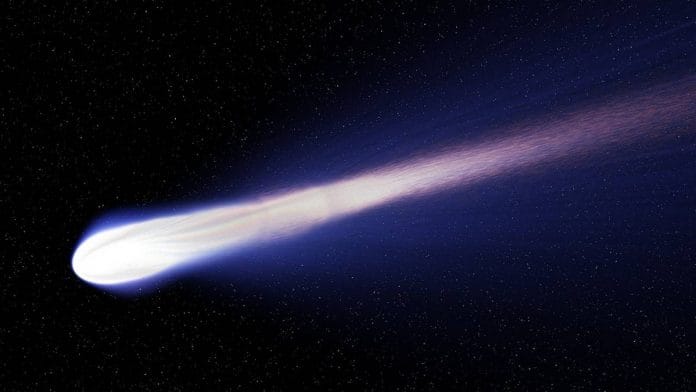The comet will pass closest to Sun this year
After the high-profile tracking of interstellar object ‘Oumuamua’ two years ago, we might be having another visitor from interstellar space. The trajectory of the comet, officially named C/2019 Q4 (Borisov), is so hyperbolic that it seems to indicate that this is yet another comet coming in from outside of our solar system. Majority of asteroids and comets follow an elliptical path — typically egg-shaped with minor deviations due to these objects straying too close to a planet or a body with strong gravitational pull. According to European Space Agency, the comet will pass closest (about 300 million kilometres) to Sun this year. Read More on Space.
Finalists for wildlife photography competition announced
The finalists for this year’s Wildlife Photographer of the Year competition have been announced. The contest, which is managed by the Natural History Museum in London, included nearly 50,000 photos submitted by both professional and amateur photographers from across the globe. Each year, the photographs reveal the changing nature of wildlife, and this year’s finalists show a fragile ecosystem affected by human activity. The names of the final winners are expected to be declared in October. Read and watch more on Gizmodo.
Scientists train rats to play hide and seek
Neuroscientists in Germany have trained a group of rats to play hide and seek. The researchers recorded “joy jumps” and ultrasonic giggles when the rats found the humans or were caught by them. The rats were able to strategise where to hide, understand complex rules and perform calculations to hide in places that humans already checked. The rats enjoyed the game by itself without having to be motivated by food. More on Science.
Climate change impacts soil’s ability to absorb water
According to a new research, global warming is affecting soil’s ability to absorb and store water. This is a matter of concern as water in the soil plays an important role in storing carbon dioxide. More carbon dioxide in the atmosphere means increased warming of the planet. The study is the result of a field experiment conducted over 25 years. The researchers say that the impact on soils from climate change could have implications for groundwater supplies and food production. Read more on Newsweek.






